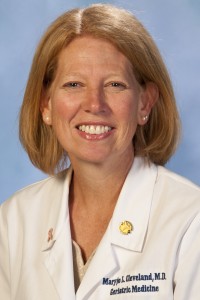HealthinAging.org Offers Valuable Support for Caregivers all Year Long
November is National Family Caregivers Month. Even though it’s now December, it’s still a great opportunity to ensure that caregivers across the country get the recognition and resources they deserve all year long. 43.5 million caregivers—many of whom may be older adults themselves—provide care for someone over the age of 50, and 14.9 million care for someone who has Alzheimer’s or another form of dementia.
Caregiving is a full time job, often performed by family members whose responsibilities may also include a career, maintaining a home, parenting teenagers and sometimes helping to raise grandchildren—all in addition to caring for an older, vulnerable parent or other older family member or loved one who needs help with the daily activities of life.
The job of a caregiver can be extremely stressful, and can take a toll on a caregiver’s health, especially if the person being cared for has Alzheimer’s disease or dementia. In fact, some 50% of people who care for people with cognitive disabilities develop psychological distress.
You can’t be an effective caregiver unless you take care of your own health needs. You’ve probably heard the pre-takeoff speeches flight attendants give, about putting on your own oxygen mask before assisting others? It’s the same with your health. Seeing to your own mental and physical well-being helps you to take on the demanding task of taking care of a vulnerable older adult.
Here’s a place to start: The Caregiver Health Self Assessment Questionnaire, which was originally developed and tested by the American Medical Association. This questionnaire can help you look at your own caregiving behavior and health risks. With your healthcare provider’s help, this questionnaire can help you make decisions that may benefit both you and the person you’re providing care for. It may also improve communication and enhance your partnership with your own health provider.
This questionnaire is meant to serve as a guide only. Be sure to speak to your healthcare provider about any concerns you may have about the questionnaire or your results.
HealthinAging.org has many other tools and tips for family caregivers. These resources offer valuable support and advice when you’re caring for a loved one:


